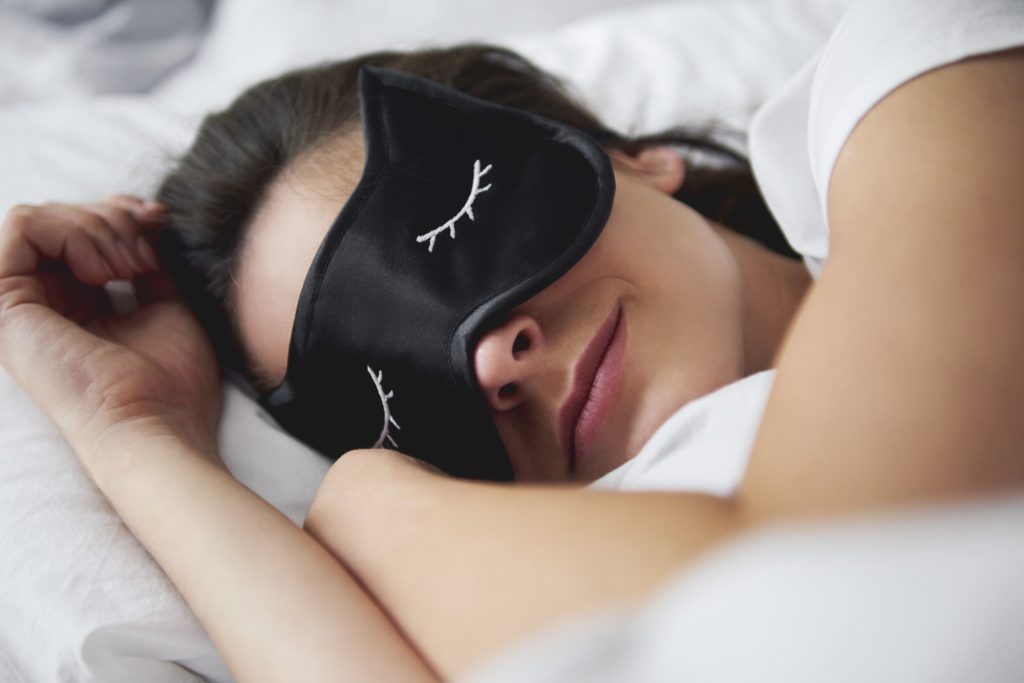
We’ve all had one of those poor nights of sleep where you get up in the morning and you’re looking a bit rough. We know that sleep affects both how we look and feel, but science is now diving into the question, how does sleep affect our skin and ultimately the aging process.
Physicians at University Hospitals Case Medical Centers conducted a clinical trial and found that poor sleepers had increased signs of skin aging and slower recovery from environmental stressors, such as disruption of the skin barrier and ultraviolet radiation. The recovery from sunburn was more sluggish in poor quality sleeper with erythema (redness) remaining higher over 72 hour period.
Sleep plays into cell renewal and although this process is always occurring it especially amps up during sleep. This is the process of old skin cells falling off and new skin cells taking their place. This is important because it causes the skin to look more radiant and for fine lines to become less noticeable. Missing out on sleep means missing out on crucial hours our skin is repairing itself.
Circadian Rhythms

Circadian rhythm is a 24 hour period responsible for biological cycles. It is the internal clock that regulates the wake and sleep cycles of the body. Responsible for keeping the body’s hormone levels in balance; Melatonin and cortisol levels for example.
Hormones
Our hormones follow a natural circadian rhythm. Cortisol is our stress hormone, released in response to fear or stress, this is what we are referring to when we talk about fight of flight. Cortisol levels typically drop during sleep allowing skin and organs to regenerate. Cortisol then heightens in the morning helping us rise and shine. Secretion has a pattern, with the low point for cortisol occurring at about midnight. Cortisol levels then again start to rise with a peak in cortisol around 9am, and as the day continues levels decline until they hit the low point again. If one does not get enough sleep, this disrupts the decline part of the cycle, and elevated cortisol is experienced.
Elevated cortisol signals your sebaceous glads to produce more oil, leading to oily acneic skin. Extra cortisol also causes a biochemical reaction that depletes your vitamins C and B stores. Adequate vitamin C is essential for collagen formation. Raised cortisol levels also make it harder for your body to repair itself as it’s in a constant state of fight or flight.
Human growth factor HGH is another hormone that is activated during stages 3 and 4 of the sleep cycle, these are the deepest stages of sleep also sometimes referred to as Non-Rem, one is not dreaming in these stages but it is hard to wake them up. Stages 3 and 4 are responsible for normal development of skin. When the body isn’t fully rested it doesn’t make as much HGH, resulting in harmful effects on the skin including an impaired barrier function. Lack of protection from your epidermis can also lead to dehydration as the barrier is meant to hold water. This can wreak havoc on ones skin leaving it vulnerable to outside bacteria and pathogens.
Circulation
Lack of sleep can slow down circulation and make you feel sluggish. Poor circulation can lead to the body and cells struggling to detoxify. Good circulation is important as that is what increases oxygen levels, and nourishment to the cells of good antioxidants and vitamins that are essential in the cells health. When the blood becomes stagnant, dark circles can appear and wounds struggle to heal. This environment allow for more free radicals to exist and this can lead to breakdown of proteins including collagen and elastin bonds that cause our skin to be firm and supple.
Tips for better sleep
Most scientist agree we need an average of 7-9 hours a night of sleep for optimal health.
Temperature:
63-70 degrees is recommended, not too hot and not too cold.
Schedule:
Follow your body’s suggestions in addition to natural daylight. Sleep after dark and wake with the sunrise.
Electronics:
Lights from electronics disrupts sleep and also distracts from listening to your body’s sleep signals. Even small lights can have an affect on your body’s circadian rhythms.
Get a massage:
Studies have shown one of the major benefits to massage is deeper sleep. Try getting a massage in the late afternoon or early evening to help your body relax.
Magnesium:
Try a magnesium soak or tablet before bed. Magnesium is a natural muscle relaxer and sleep aid, and it can be found in Epsom salts. Add a few drops of lavender oil for a relaxing bedtime bath. 100-300mg of magnesium a few hours before bed works just as well.
NOW Supplements, Magnesium 400 mg, Enzyme Function*, Nervous System Support*, 180 Capsules
Soothing Tea:
Try a chamomille tea an hour or so before bed to relax and unwind
Read:
Reading is a great way to wind down and tire a restless mind before going to bed. Read something positive or uplifting to go to bed with something good on the mind.
Disclosure: I get a small commissions for purchases made through links in this post.

 14350 North Frank Lloyd
14350 North Frank Lloyd
Comments are closed.